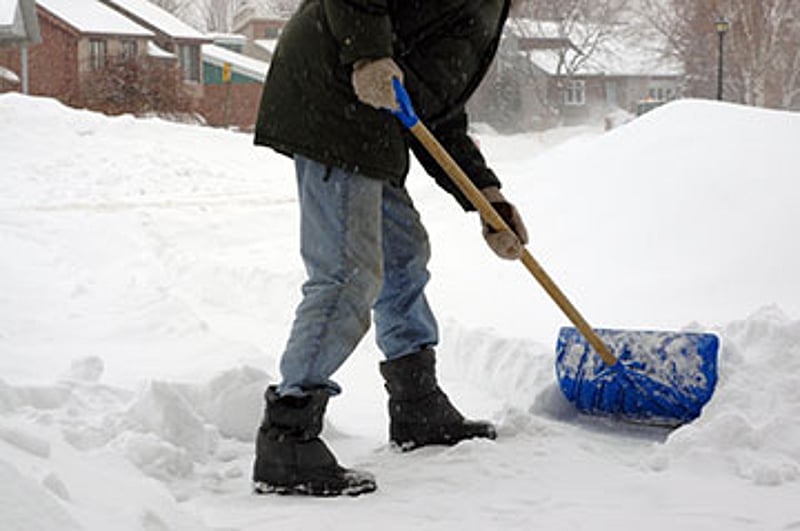Get Healthy!

- Posted January 16, 2022
Don't Snow Shovel Your Way to a Heart Attack
Shoveling snow may trigger a heart attack if you're not careful, especially if you already have risk factors, an expert warns.
The combination of shoveling and cold weather can cause your arteries to spasm and constrict, explained Dr. Sam Kazziha, chief of cardiovascular services at Henry Ford Macomb Hospital in Detroit.
"During the snow season we do get heart attack victims who were exposed to the cold weather while doing strenuous activities like shoveling snow," Kazziha said in a news release from the Henry Ford Health System.
Most are middle-aged people who ignore their pre-existing risks for a heart attack, he noted.
The risk is higher for folks who have had previous heart attacks or who suffer from any type of heart or vascular disease, high blood pressure, diabetes or high cholesterol.
"Those people are at higher risk of having blockages in the arteries of the heart," he explained.
Kazziha said folks "absolutely underestimate" how strenuous shoveling snow can be.
"People over 65 take the approach that they'll just push a little bit of snow from their doorstep," he said. "But they don't realize that it may be much more stressful than they think, especially if it's wet, heavy snow."
People in their 50s who think they're in good shape but have heart disease and other risks also tend to overdo it.
The heart attack risk for people with heart disease is even higher if they have a large meal or drink alcohol before shoveling, Kazziha warned.
Certain high-risk people should avoid shoveling altogether, Kazziha said. That includes those who have had a heart attack, coronary bypass surgery or who have coronary stents; and those with personal or family history of heart disease.
Typical symptoms of a heart attack include chest tightness or pressure; a feeling of indigestion; neck or jaw discomfort; lightheadedness; shortness of breath; tingling, pain or discomfort down the arms; cold sweats; or feeling nauseous. Women are just as likely to have a heart attack as men are, but women are more likely than men to die from one, researchers have found.
Kazziha offered some safety tips for safer shoveling:
- Dress warm and in layers. Be sure to wear a hat, gloves and snow boots. Cover your mouth and nose to limit the cold air you inhale.
- Don't shovel large areas all at once. Clear small sections, one at a time, and take regular breaks.
- Push the snow using quick, short strokes instead of lifting it. If the snow is deep, clear it in layers to avoid fatigue.
- The best option may be to give the job to a snow clearing service or a neighborhood kid.
More information
The American Heart Association has more on snow shoveling and heart risks.
SOURCE: Henry Ford Health System, news release, Jan. 10, 2022

